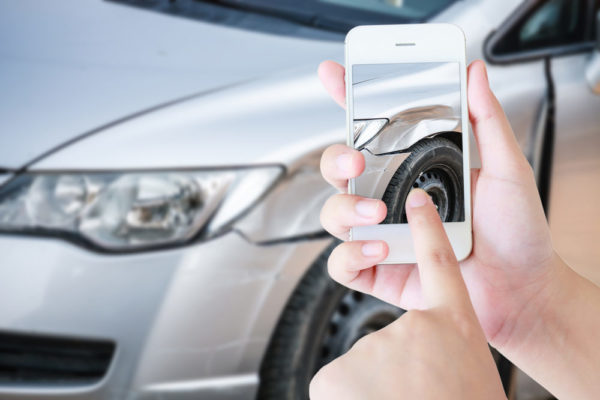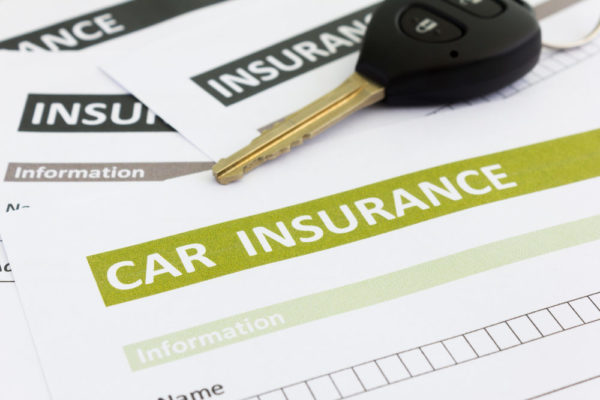The moments immediately after an auto accident can be highly emotional and sometimes confusing. But even during these stressful times, there are important matters that need to be addressed by someone not seriously injured in the accident.
The safety and health of everyone involved are always the most important and first concern in any crash. If you remember only one thing from this article, it should be to do everything possible to make sure serious medical needs are dealt with quickly and completely.
Beyond medical needs, there are also some practical steps that you can take to start bringing order to this chaotic circumstance — allowing you to successfully address current challenges and prepare yourself in the best possible way for the challenges that lie ahead.
Your actions are important both at the time of the crash and in the days that follow, and at The Legal Examiner, we have come up with a list of some of the most important things you can do if you’re involved in an accident. These tips are divided into two categories: “What to Do at the Scene of an Accident,” and “What to Do Immediately After an Accident.” The Legal Examiner has also created a guide for “What Do I Do After an Auto Accident?” in Adobe pdf format that you can download and store in the glove compartment of your car or truck.

Table of Contents
What to do at the Scene of the Accident
In the confusion following an accident, remember to take care of all medical needs first. If you are not seriously injured, the following are ten important things that will help you make sense of a confusing situation and protect yourself and your family, after the fact.
Assess the Situation — Before you act, take a brief moment to gather basic information from the scene. What is your own medical condition and the condition of your passengers? Are there any continuing dangers like fires or oncoming traffic? Take whatever means are necessary to secure your safety and the safety of your passengers before anything else.
Begin with Immediate Emergencies — If you and your passengers are safe, then check the driver(s) of the other car(s) involved in the accident and any passengers they may be carrying. Check for pedestrians, motorcyclists or bicyclists who might have also been injured in the crash. Again, scan the scene for any immediate dangers and deal with them as necessary.
Call For Help — With any emergency needs attended to, call for help. If any one is injured call 9-1-1 and ask for emergency medical attention to be directed to the location. If no one is injured, call the local police, sheriff, or highway patrol as appropriate to your situation.
Attend the Injured — If there are injuries and no pressing danger (fire, etc.) then don’t move the injured until medical help arrives. Instead, stay close by anyone who is injured, keeping them warm, and doing your best to make sure they remain conscious and alert.
Prevent Additional Injuries — If possible (and allowed by the laws of your state), make every effort to make the roadway safer and prevent additional injuries by moving the cars and providing a clear path for traffic. If there are any injured passengers who shouldn’t be moved or if the cars are unable to be cleared, place flares, warning signs, and/or have someone direct traffic away from the scene.
Report the Facts — When medical help and law enforcement arrives, immediately report any injuries or ongoing emergencies. Answer any direct questions they ask about what happened to the best of your ability, but remember most insurance companies advise you — do not admit fault (you may not know all the facts) and do not share your policy limits with anyone.
Collect Detailed Facts — As the situation begins to calm down, take time to record important information about the accident and those involved at the scene. Don’t distract the EMTs or keep the police from doing their job, but try and get these facts in a safe and respectful way:
- Get basic information from all other drivers involved in the accident — include their full first and last names, their driver’s license number, and their insurance carrier. Offer your name, license number, and insurance carrier to other drivers, as well.
- Get basic contact information from all Passengers and Witnesses including their full first and last name, a phone number, and a driver’s license if they are willing to share it.
- Record detailed information about each vehicle involved in the accident — include model, make, color, and year (if possible). Record the license plate number for each vehicle. Describe the damage to the vehicle and make note of the driver and the passengers who were travelling in that car (truck, motorcycle, etc.).
- Get the first and last name, badge number, and report number (along with a copy of the report, if possible) from the officer in charge at the scene. If there was an EMT team or medical personnel present, try to get at least one name and the company name.
- Make a drawing(s) that represents the crash scene — draw arrows to indicate the movement of vehicles and the position of witnesses. Identify vehicles in your drawing by make, model, color and license number. Identify people by first and last name.
- Take photos to document the scene — Use your cellphone to take as many photos as you need, but be sure to capture any visible skid marks and take close-up shots of any and all property damage.
Secure Your Vehicle for Transport — as events wind down, make it a point to remove or secure any valuables or important personal items from your vehicle if it is going to be towed from the scene. Be sure to either designate, or get detailed information about, where your car is taken.
Contact Your Insurance Agent / Company — if you’re able, take time to make a brief call to your insurance agency and let them know that you’ve been involved in an accident. Explain the situation to them and ask if they have any advice or special instructions for you while you’re on the scene. Let them know that you’ll be contacting them with more details later.
Write a Detailed Account — As soon as you can after the accident, write a detailed report of what you remember of the event. Include details that you recorded at the scene. Be sure to include the time of day and weather and road conditions at the time of accident in your report. Remember, the longer you wait, the more details you are likely to forget.
Create an Car Emergency Kit
Preparing an emergency kit before an accident may make an important impact on what happens when an accident actually occurs. Take the time to gather a few simple items now and keep them ready in your car or truck. Think through some of the specific things you or a loved one might need on site in case of an emergency. Do you have special medical or dietary need? Do you need to carry an emergency supply of your prescription medication? Here’s a short list that would be a good start for any kit.
- Accident Checklist / Information Sheet
- Basic First Aid Kit
- Flares / Warning Signs
- Flashlight
- Disposable Camera
- Pad and Pencil / Pen
| KEY STRATEGY — BE PREPARED —Before an accident ever occurs, take the time to prepare an emergency kit and keep it ready in the glove box or another storage area in your vehicle. NEXT STEP — Pick a date on the calendar right now and make it a priority to have a basic kit in your car by that date. |
Preparing a Plan
Once you’ve dealt with the immediate issues at the scene of the accident and had some time to rest and regroup, it’s important to prepare a plan for what’s next. Even a simple accident can become complicated by the need to work with law enforcement, multiple insurance companies, doctors, hospitals, other health care providers and, at times, lawyers representing both you and the drivers of the other vehicles.
In an auto accident, especially one involving serious injuries, you should develop a plan of action in the following five areas:
- Medical
- Work / Employment
- Insurance
- Social Benefits
- Legal Issues
Medical Issues After an Auto Accident
Mild to Serious Injuries — the most important issue in any accident is the health and well-being of those who may have been hurt or injured. That means the most important part of your plan should be to first get treatment for any immediate or life-threatening conditions and then take steps to find the right doctor or specialist who can correctly diagnose & treat your long-term condition.
Automobile Accidents can cause specialized injuries that range from relatively minor conditions like lacerations or sprains, to more serious injuries like broken bones, spinal cord injury, brain injury, and internal organ damage and/or bleeding. For these more serious injuries it’s essential to find a doctor who specializes in your injury.
Get more information about the medical issues connected with an auto accident.
Work / Employment Considerations After a Crash
Your ability to return to work after a car or truck accident will depend on the seriousness of any injuries and the need for on-going medical treatment. If you are unable to return to work because of your injuries, it’s important to contact your employer as soon as possible. If you are unable to contact them yourself because of your injuries or treatment, then have a friend or family member make this important call for you. Remember to communicate to the employer that you have had an accident and are medically unable to return to work. Eventually they will want some verification from your doctor for their records. Your doctor’s office or the hospital should be able to easily provide whatever is needed.
When you’ve reported your medical status, then ask to speak to someone about how your accident and your job intersect. Either during this initial contact or within a short time of your call, a company representative should be able to give you some basic information and answer any questions you have on the following topics:
- Your job status while you are out of the office / worksite because of your injury
- How many medical accident / injury leave days you have available (if any)
- Your company health insurance (if any) and what it covers
If your accident occurred as a part of your work duties, then you will also need information about Workers’ Compensation Insurance.
Get more information about workers’ compensation.
| KEY STRATEGY —Before you contact your employer generate a list of relevent questions. Be sure to cover the issues above and any additional concerns you think of. Take good notes during the call and write a short summary afterwards to help you remember what you discussed and any important information or next steps. |

Vehicle Insurance
If you haven’t already contacted your automobile insurance carrier, then you should make this the next step in your plan. The major issues that you’re going to have to deal with in terms of insurance are:
- Personal Injury Protection (PIP) — this insurance covers your loss due to an injury no matter who was at fault in the accident. For that reason, it is often called “No-Fault” Insurance. Mandatory PIP insurance coverage varies from state to state.
- Property Damage — this is the insurance that will cover damage to the vehicles involved in the accident as well as any other property that might be affected.
- Bodily Injury Liability / Health or Medical Insurance — this is the insurance that will cover medical treatment and rehabilitation bills related to the accident. Coverage may be part of your auto insurance policy or from your personal or work-related health insurance.
- Claims Strategy — if you have car insurance, personal health insurance, and/or are covered by your spouse’s workplace insurance, then there are multiple policies where you might be able to file your claim. Different carriers may offer very different results for exactly the same accident, so it’s important to know your options and file correctly.
| KEY STRATEGY —Most insurance coverage is limited to a certain financial payout per accident. If you’re involved in a complicated accident involving multiple vehicles and serious injuries, each injured person has a potential claim against that single limit. It’s important to register your claim quickly to make sure that you and your family are protected. |
Get more information about insurance issues related to an auto accident.
Social Benefits
In the case of a serious or catastrophic accident where an injured person is either temporarily or permanently disabled, it’s important that social benefits (Social Security Disability Insurance, Medicare, Medicaid, Workers’ Compensation, etc.) come on-line immediately. These benefits, even though small, are still a reasonable safety net for anyone who is injured and their family and can make a difference in their financial well-being.
Remember that these government benefits are not necessarily on-going and are constructed in a way that as soon as money starts coming in from another source (an insurance settlement, legal damages, etc.), they start going away — dollar for dollar. There are several important strategies to consider when applying for social benefits and/or receiving any money that is connected to your accident.
Auto Accident Legal Issues
In almost every motor vehicle accident there will be some legal issues to address. Legal matters can range from simply dealing with a police officer or technician on the scene all the way to a series of multi-year lawsuits involving a combination of various drivers, insurance companies, automobile, and other product manufacturers, etc.
For a simple accident with clear fault, minor damages, no medical injuries, and responsive insurance carriers, you will likely be able to handle all matters without the need for an attorney. If your accident, however, resulted in considerable property damage, some medical injuries, difficulty with one or more insurance carrier, and/or a question of who is at fault, then there is a good chance that you will need to consult with an attorney about your rights and advice about what to do next. If your accident resulted in serious injury or death then you should begin the process of looking for legal counsel immediately.
Get more information about legal issues related to an auto accident.









